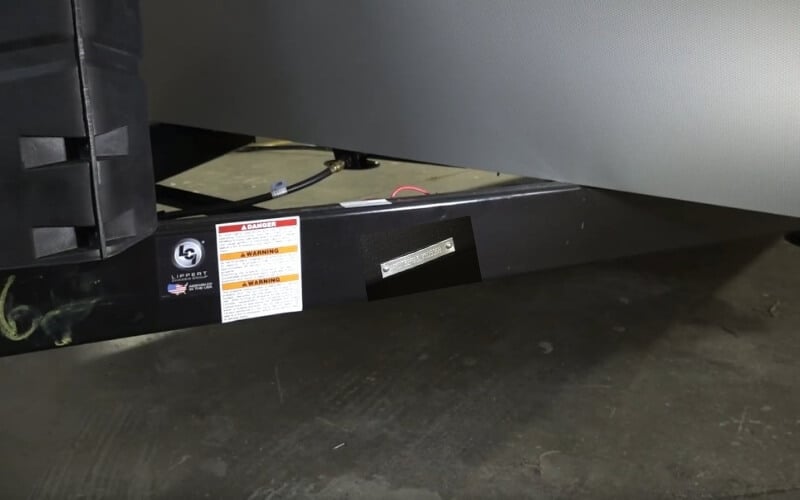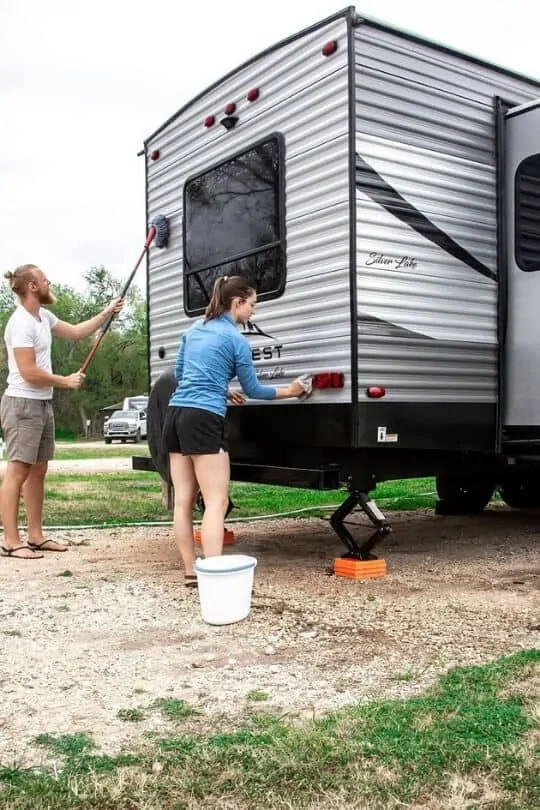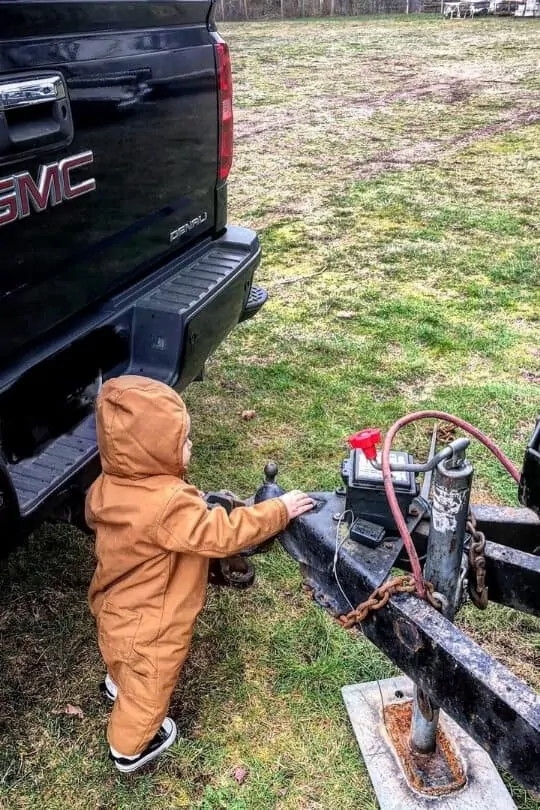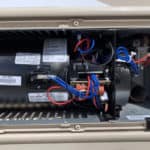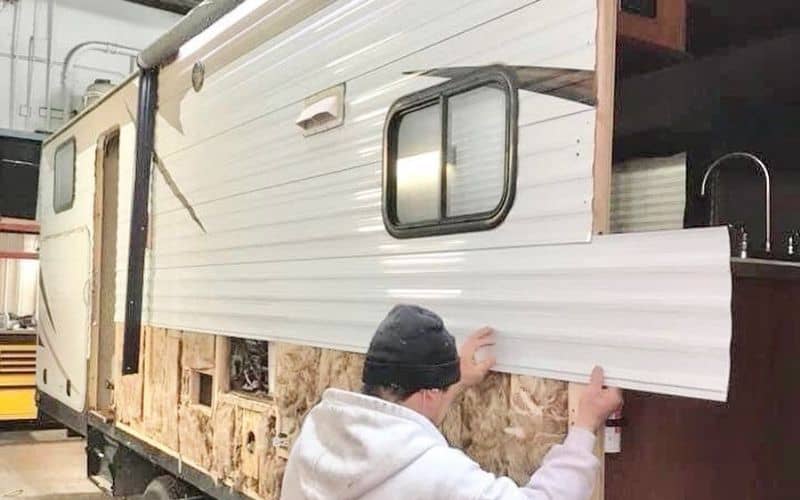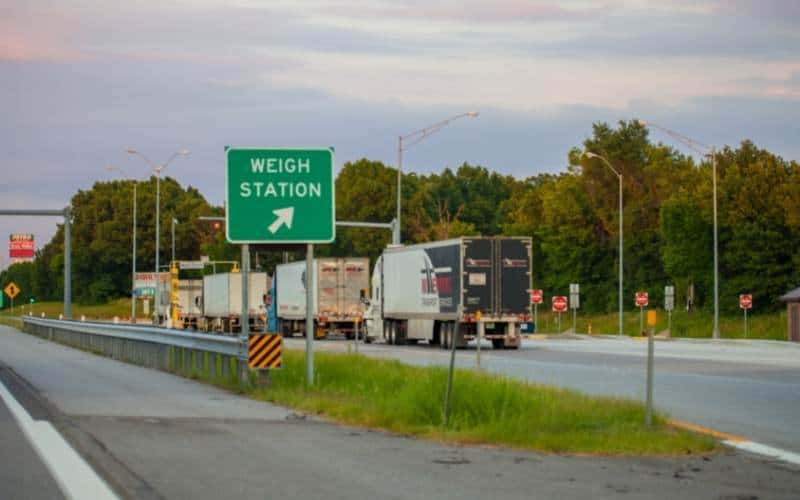If you have ever bought a new car, you probably checked the VIN record to get a basic history of the vehicle.
This is a very important step since a vehicle’s damage and accident history may impact it’s safety or future maintenance. You also want to make sure you’re not buying a stolen vehicle.
Can you get the same history for a travel trailer? Do travel trailers even have VINs?
Just like normal cars, travel trailers and RVs have a VIN that you can use to get a basic history of the camper, including insurance claims about damage, theft, or accidents. The VIN for a travel trailer is the same as for a car; a unique number specific to that travel trailer or RV.
In this article, I’m going to cover what a VIN is and what information you can get when looking up a VIN, as well as how to find and look up the VIN for your travel trailer.
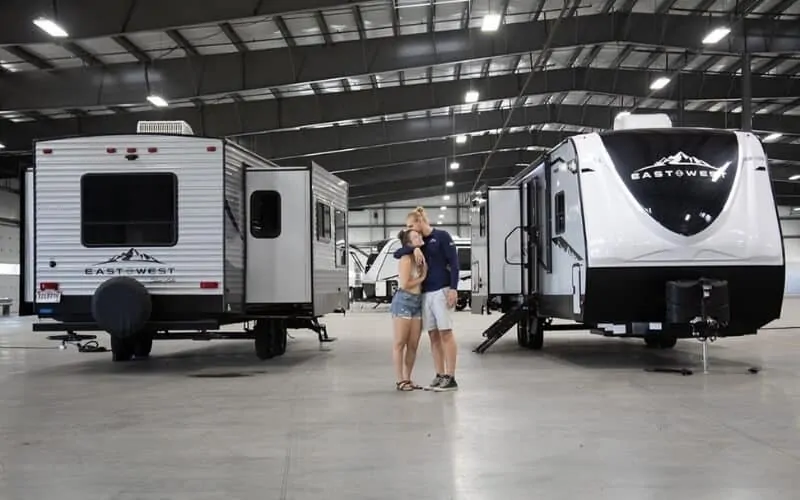
Understanding Your RV’s Vehicle Identification Number
All street-legal vehicles, including cars, motorcycles and travel trailers, are required by law to have a VIN (Vehicle Identification Number).
Every road vehicle that was made after 1977 has one. Also, VIN numbers were not standardized before 1981, so if your travel trailer was made in 1980 or earlier, it might not have a VIN.
The National Highway Traffic and Safety Administration (NHTSA) defines the VIN format for all classes of vehicles.
These numbers are 17 alphanumeric characters long and therefore, they include a mix of numbers and letters.
The VIN is essential for identifying one trailer from another and has six different parts:
Are The VIN And Serial Number The Same Thing?
No. As noted above, the serial number is a part of the VIN (the last six characters), but the full VIN is the unique number assigned to that particular travel trailer. The serial number is not as unique.
How Do I Find Out The Year Of My Travel Trailer?
We discussed above that the tenth alphanumeric character in your travel trailer’s VIN signifies the model year of your trailer.
However, it’s not so simple since it’s only one character. Plus, it can be a letter.
Refer to the chart below to find out what letter or number your VIN should have based on the year it was made.
Note that there are some alphabetical letters missing – this is probably due to their visual similarity with numbers (“I looks like the number 1, and “O” and “Q” look like zeros, which are also excluded).
| A – 1980 | M – 1991 | 2 – 2002 | D – 2013 |
| B – 1981 | N – 1992 | 3 – 2003 | E – 2014 |
| C – 1982 | P – 1993 | 4 – 2004 | F – 2015 |
| D – 1983 | R – 1994 | 5 – 2005 | G – 2016 |
| E – 1984 | S – 1995 | 6 – 2006 | H – 2017 |
| F – 1985 | T – 1996 | 7 – 2007 | J – 2018 |
| G – 1986 | V – 1997 | 8 – 2008 | K – 2019 |
| H – 1987 | W – 1998 | 9 – 2009 | L – 2020 |
| J – 1988 | X – 1999 | A – 2010 | M – 2021 |
| K – 1989 | Y – 2000 | B – 2011 | N – 2022 |
| L – 1990 | 1 – 2001 | C – 2012 | P – 2023 |
As you can see for trailers that were manufactured in the 1980s and with campers made between 2010 and now, there is an overlap.
However, there is a 30-year difference, so it should be obvious that your trailer was built in 2018 instead of 1988, for example.
How Do I Get A VIN Number For My Vintage Travel Trailer?
If the travel trailer or RV you’re buying is a vintage model and was manufactured before 1981, it might not have a VIN, or the wear-and-tear over the years may have worn down the sticker so that it is illegible.
If the seller or dealer doesn’t have documentation (such as the title) with the VIN on it, they may need to apply with your state’s DMV to have a new VIN issued.
If you already own the trailer, this application would be your responsibility.
The process to get a new VIN issued will depend on your state, so you should start by checking with a local DMV office to find out what that process is.
Generally, you will need to complete and file an application for a new VIN, prove your ownership of the trailer (i.e. a bill of sale), and have any state-required inspections or tests completed.

What Does A RV VIN Check Show?
It’s always important to check the record for a travel trailer’s VIN before you buy it, even if you’re buying from a dealer.
The vehicle history report will show you key information that may impact the trailer’s safety, maintenance, or even its value.
When you get your VIN report, look for key, camper-related vehicle activity like:
How To Find Your Trailer’s VIN Number
Although every travel trailer and RV is assigned a VIN at the point of manufacture, it’s labeled in different places on different campers and there’s no standard location.
Generally speaking, the VIN for a travel trailer on the camper’s trailer tongue, frame rail near the hitch, or on the Federal certification label.
The government requires a trailer to have a Federal certification label to show that the trailer complies with motor vehicle standards, and shows the manufacturer’s same, the trailer’s VIN, and other information such as weight ratings and cold tire inflation pressures.
The VIN is usually on a sticker and some typical places to find it on an RV trailer are:
- Steering column
- Vehicle firewall
- Radiator support bracket
- Driver’s door frame
- Inside wheel arch
- Machined pad on front of engine
- Front left corner near the bottom of the sidewall
How To Check A Trailer VIN Number
You should always verify that the VIN on the trailer’s title matches the VIN on the actual vehicle before buying it. Follow these steps to find it.
RVs Might Have Multiple VINs
If you’re searching for the VIN on your RV, be careful because many RVs have two VINs.
This is because most RV manufacturers build their campers on chassis that were manufactured by a third party (who assigned a VIN to the incomplete vehicle), then the RV manufacturer incorporates the RV into the incomplete chassis and assigns a VIN to the completed camper.
So, Forest River might buy a chassis from Chevy or Ford to build their motorhomes, and the motorhome will have a VIN from Forest River as well as from Chevy or Ford.
How To Get A Report For Your Trailer’s VIN
After locating the VIN on the trailer, there are two ways to get a vehicle history report for it.
There are several online VIN check services, but they often don’t have reports for travel trailers. Your best bet is one of the following:
How To Keep Accurate Records For Your Travel Trailer
When you own a travel trailer or RV, you should keep records for future owners and your own organization.
This will help with resale value as well as trust with potential buyers down the road; if you have accurate and specific information about what’s happened to the camper throughout its life, they’ll be more confident buying it.
What kinds of records should you keep? Here’s my take:
Summary About Looking Up A Travel Trailer’s VIN
I hope this article has helped you with the information you need to find a travel trailer or RV’s VIN without too much hunting! It helps that campers have VINs just like any other road vehicle, and that they are constructed the same.
Remember, it’s very important to check the VIN of a camper before you buy it, since the report can give you vital information that the previous owner might not know or tell.
Once you own a camper, it’s also important to keep accurate records for your own peace of mind as well as to facilitate an easier re-sale if you decide to get rid of the camper down the road.
FAQs
How can I perform an RV VIN lookup?
You can perform a RV VIN lookup online using various websites that offer this service, such as RVchecks.com or RVfax.com. You must enter the RV’s VIN and pay a fee to get a full report.
What is the process for a camper VIN lookup?
A camper VIN lookup is a way to check the history and details of a camper vehicle using its unique identification number. A camper VIN lookup can reveal information such as the camper’s manufacturer, model, year, features, and accident or damage records.
To perform a camper VIN lookup, one can use online services that offer free or paid reports or contact the camper dealer or manufacturer directly.
How can I use an RV VIN lookup to get NADA values?
NADA stands for National Automobile Dealers Association, and it provides guides for pricing different types of vehicles. To use an RV VIN lookup, enter the 17-digit Vehicle Identification Number (VIN) of the RV you are interested in. The VIN is a unique code that identifies the vehicle’s make, model, year, and other features.
The RV VIN lookup will then show you the NADA values for the RV based on its condition, mileage, and optional equipment. You can use these values to compare different RVs and negotiate a fair price.
What information can I obtain using an RV VIN decoder?
An RV VIN decoder is a tool that can help you learn more about your recreational vehicle. By entering your RV’s 17-digit Vehicle Identification Number (VIN), you can get information such as the manufacturer, model, year, engine type, weight, and more.
This can be useful for verifying the features and specifications of your RV, as well as checking its history and safety records.
How can I perform a travel trailer VIN lookup?
A travel trailer VIN lookup can be done online using various websites that offer this service or by contacting the trailer’s manufacturer or dealer. A travel trailer VIN lookup can help you verify the trailer’s history, ownership, condition, and value.
Is there a way to perform a free camper VIN number
There are different ways to perform a free camper VIN lookup. One option is to use the NICB’s free VINCheck service, which can help you determine if the camper has been reported as stolen or salvaged by cooperating insurance companies2. You can access this service here: https://www.nicb.org/vincheck
Another option is to check with your local DMV or visit them in person. You may need to provide personal information and pay a fee for this service2.
A third option is to use some online tools that are NMVTIS-approved providers of vehicle history reports. NMVTIS stands for National Motor Vehicle Title Information System, a program that protects consumers from fraud and unsafe vehicles.

